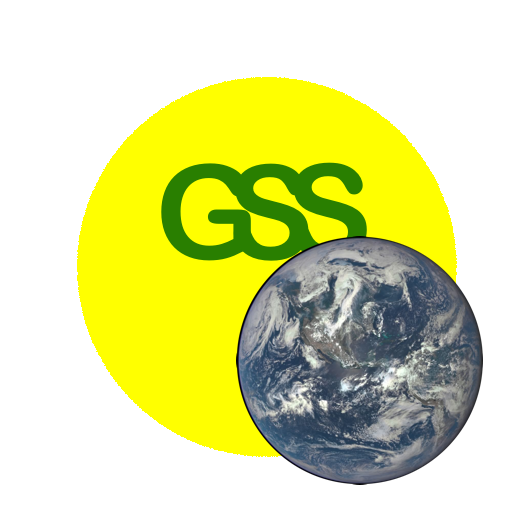Category: Books Online
EC7C. Stay Current—Neighborhood and Global Stewardship
Staying current for Chapter 7 See also articles from{2008–2021} and {1998–2007} See non-chronological resources for this chapter. { Ecosystem Change Contents } 2025-12-18. Keep Omaha Beautiful Highlights Solutions Plastic Lumber. By ruth richter, First Star Recycling. Excerpt: We’re excited to celebrate the launch of Keep Omaha Beautiful’s new webpage highlighting how orange bag plastics collected […]
EC7C. 1998–2007 Neighborhood and Global Stewardship
Staying current for Chapter 7 Articles from 1998–2007 Stay current index page for Chapter 7 { Ecosystem Change Contents } 2007 December 22. As Cars Hit More Animals on Roads, Toll Rises. By JIM ROBBINS, NY Times. Excerpt: BOZEMAN, Mont. – On a dark highway near Anchorage, Specialist Steven Cavanaugh of the Army, who had survived 300 […]
EC6C. Stay Current—Carrying Capacity
Staying current for Chapter 6 See also articles from{2009–2021}-{2002–2008} { Ecosystem Change Contents } Excellent video (15 minutes): Mountain Lions in Nebraska (2011) Latest articles (2022–) 2026-02-18. Highly destructive mussel has started to invade the Amazon. By Sofia Moutinho, Science. Excerpt: The golden mussel, a highly destructive invasive species that began to plague South American waterways decades […]
EC6C. 2002–2008 Carrying Capacity
Staying current for Chapter 6 Articles from 2002–2008 Stay current index page for Chapter 6 { Ecosystem Change Contents } 2008 Fall. Delta Blues. By Barry Yeoman, OnEarth. Excerpt: On this brisk, cloudless day, Tom Zuckerman and I are driving to his duck-hunting club on Rindge Tract, one of the low-slung rural islands that form the nucleus […]
EC5C. Stay Current—Carbon in the Biosphere
Staying current for Chapter 5 { Ecosystem Change Contents } 2026-02-17. Restored Peatlands Could Become Carbon Sinks Within Decades. By Saima May Sidik, Eos/AGU. Excerpt: Drained peatlands in Finland can become carbon sinks within just 15 years of restoration, suggests a study published in Restoration Ecology. The findings are a stark contrast to another recent publication that suggests the […]
EC4C. Stay Current—Changes in the Global System
Staying current for Chapter 4 { Ecosystem Change Contents } See also Staying Current for: GSS Climate Change chapter 8, Losing Biodiversity chapters 5 (Soil, the Living Skin of the Earth), 7 (One Global Ocean), and 8 (Champions of a Sustainable World). 2025-12-08. Tree bark microbes for climate management. By Vincent Gauci, Science. Excerpt: For decades, soil was thought […]
EC3C. Stay Current—Studying Desert Ecosystems
Staying current for Chapter 3 { Ecosystem Change Contents } 2025-12-03. 98% of Gaza’s Tree Cropland Destroyed by Israel. By Kimberly M. S. Cartier, Eos/AGU. Excerpt: Maps based on remote sensing analysis could inform remediation efforts by identifying whether agricultural lands were damaged by bombs, debris, or forced displacement of its caretakers…. Full article at […]
EC2C. Stay Current—Energy Through the System
Staying current for Chapter 2 { Ecosystem Change Contents } SEE ALSO…Losing Biodiversity 2026-01-06. Earthquakes shake nutrients loose in the deep. By Science Adviser. Excerpt: Eighteen hundred meters below Antarctica’s Southern Ocean, a volcanic ridge lined by hydrothermal vents burbles in the dark. As these vents belch out scalding water rich with iron and other […]
EC1C. Stay Current—Earth Alive!
Staying current for Chapter 1 See Non-chronological resources for this chapter { Ecosystem Change Contents } 2025-10-30. Rocky Mountain National Park wants its beavers back. By Hank Lacey, SFgate. Excerpt: On Rocky Mountain National Park’s less-visited west side, the Kawuneeche Valley looks different than it used to. Where wetlands shimmered, the autumn light now bathes […]
EC7. Neighborhood and Global Stewardship
Chapter 7 { Ecosystem Change Contents } The citizens of the United States use more energy and resources per person than do people in other countries. What can we do to reduce our individual and collective impact on earth’s global system? On the pages that follow, we have described some actions taken by students to […]

